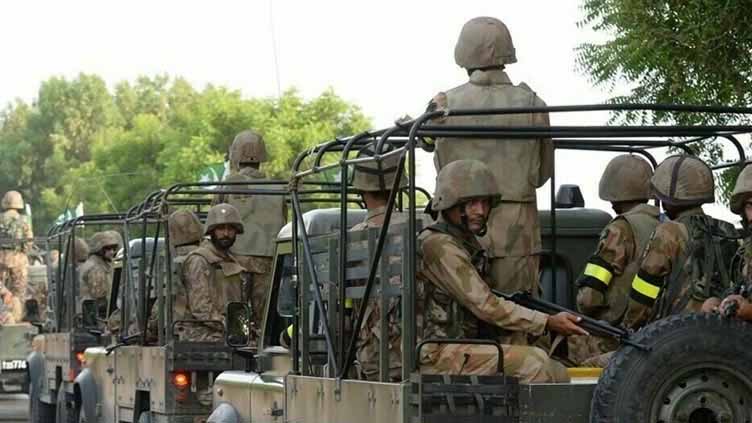Two militants, including a high-profile target, were killed by security forces during an intelligence-based operation (IBO) in Timergara, located in Khyber Pakhtunkhwa’s Lower Dir district. The operation was launched following confirmed reports of terrorist presence in the area.
The Inter-Services Public Relations (ISPR) confirmed the successful action on Friday. According to their statement, the operation targeted members of a militant group referred to as khawarij (a term used by authorities for terrorists). The military surrounded the hideout and engaged the suspects in a heavy gunfight.
After a fierce exchange of fire, both militants were neutralized. One of them was identified as Hafeezullah, also known as Kochwan. He was a most-wanted individual involved in several terrorist activities across the region. The government had announced a bounty of Rs10 million on his head due to his violent record against both civilians and security forces.
ISPR called him a high-value target and said he had been actively involved in deadly operations. “He was sent to hell,” the statement added, highlighting the seriousness of the operation. His actions caused immense damage and fear in the region.
Following the shootout, security teams began a thorough sanitisation operation. Their goal is to clear the area of any remaining threats. The military reaffirmed its commitment to uproot terrorism completely. They stressed that such actions will continue until every militant group is dismantled.
Prime Minister Shehbaz Sharif also praised the forces for their brave action. In his official statement, he honored the efforts of the soldiers. He said the government remains firm in its resolve to crush all terrorist activities. According to him, the fight against extremism will not stop until peace is fully restored.
The problem of cross-border terrorism has become a serious concern for Pakistan. Despite repeated warnings, militants continue to use Afghan territory for planning and executing attacks. These infiltrators often sneak across the border and target Pakistani areas.
Pakistan and Afghanistan share a porous border of over 2,500 kilometers. Several crossing points along this boundary are crucial for trade and people-to-people ties. However, the same routes are exploited by terrorist networks.
A recent report by the United Nations Security Council has confirmed Islamabad’s fears. It stated that the Afghan government is linked with the banned Tehrik-i-Taliban Pakistan (TTP). According to the UN’s Analytical Support and Sanctions Monitoring Team, Kabul offers financial, operational, and logistical support to these militants.
Just last month, Pakistani forces killed 16 terrorists in Ghulam Khan Kallay, North Waziristan. These attackers were trying to enter the country from Afghan soil. Security units detected them and responded immediately, stopping another wave of potential attacks.
Terrorist activities have seen a sharp rise across the country. January 2025 recorded a 42% surge in militancy compared to December, according to data from the Pakistan Institute for Conflict and Security Studies (PICSS).
The think tank reported 74 militant attacks during the month. These resulted in 91 deaths—35 from the security forces, 20 civilians, and 36 militants. Another 117 people suffered injuries, including 53 security personnel and 54 civilians.
Khyber Pakhtunkhwa was the hardest-hit province. In its settled districts, 27 attacks were recorded. These led to 19 deaths, which included 11 soldiers and six innocent civilians. The tribal areas of KP, formerly known as FATA, also witnessed violence. There, 19 incidents resulted in 46 deaths—13 troops, eight civilians, and 25 terrorists.
The government continues to face challenges as terrorist activities grow in intensity. But the resolve to eliminate this threat remains stronger than ever. The military, backed by public support and political will, is determined to protect the nation from every enemy.


